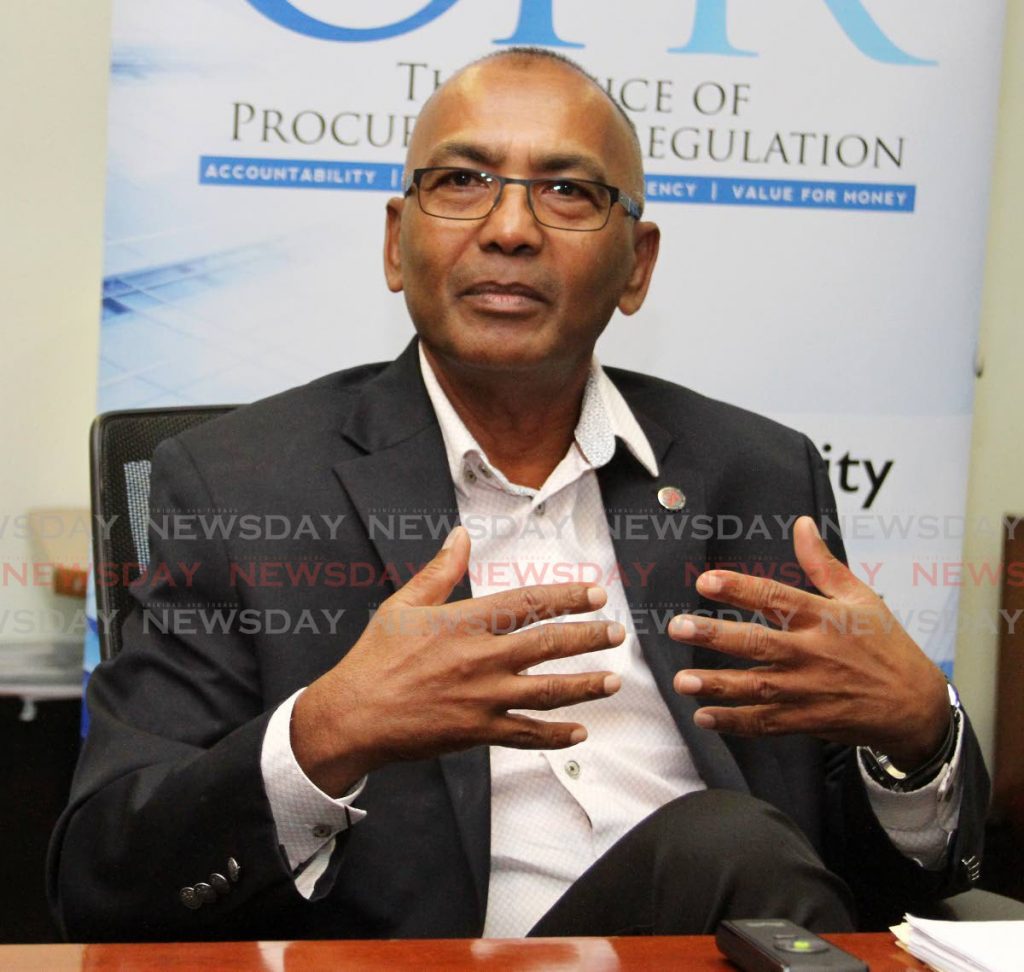Procurement rules languishing on Imbert's desk

FINANCE MINISTER Colm Imbert received the regulations the Public Procurement Act 134 days ago, but has not yet submitted them for Cabinet approval.
Cabinet approval is necessary for the act to be fully proclaimed, and for the Office of the Procurement Regulator (OPR), which would manage public procurement, to be able to act in its full capacity. So what is stopping the minister from putting the regulations before Parliament?
When Newsday asked Procurement Regulator Moonilal Lalchan this question, he didn’t have an answer.
“We don’t know what is holding them back,” Lalchan said in an interview with Newsday on Monday at the OPR's office at Tower D, International Waterfront Centre in Port of Spain. Lalchan said the OPR was required to prepare regulations for the act and forward it to the Finance Minister for "affirmative resolution" by Cabinet. The OPR sent the final draft of the regulations on September 2 last year.
“They (the Finance Ministry) sought advice from senior counsel. We had legal advice. And based on that, we finalised the regulations and sent it to the minister." The OPR sent its recommendations, as discussed with legal counsel and the ministry. It also sent recommended regulations that did not necessarily need immediate Cabinet approval but would still allow parts of the act to be proclaimed.
“There is nothing that should have stood in the way of saying these sections do not need regulations, so we don’t need to go to Parliament... let's proclaim.” The Public Procurement Act was passed in December 2014; thus far the bulk of section 13 has been proclaimed, which mostly deals with setting up the Office of the Procurement Regulator. The rest of the act, which gives the OPR the power to enforce the law, still needs to be proclaimed. So, without Cabinet approval of these key regulations, the OPR cannot enforce the act.
Lalchan said the minister’s part in the proclamation of the act is the only thing holding the OPR back from operating in its full capacity.
Full proclamation, he said, "gives us the teeth to do investigations and audits and that is what we are waiting on. We were given a number of dates previously and that kept slipping. We expect the minister to keep his word this time, and get this done by the end of this quarter (March 2020).”
When fully proclaimed, the Public Procurement Act would replace the Central Tenders Board Act, which currently governs the way government procures goods and services. The OPR would, within three months of the new act being proclaimed, replace the Central Tenders Board.
The OPR would also be able to investigate and make recommendations to the Director of Public Prosecutions (DPP) in the event that anything illegal is done when procuring goods and services for the State.
While the regulations remain with the minister, Lalchan said six complaints have already been forwarded to the OPR for investigation.
It has not been able to investigate; instead, the matters have been forwarded to relevant ministries for investigation.
Although the act has not been fully proclaimed, many government bodies have already adopted the policies and regulations in the act as part of their policies. The first to do so was SWMCOL, Lalchan said.
IN the meantime, the OPR has also been busy. "Even though the act has not yet been fully proclaimed, we have met with 171 organisations, we have gotten 226 requests for assistance and we have answered 223 of the 226. There are a number of organisations which are already starting to practise as if the act was in place. They are not waiting for full proclamation, which is very commendable.”
The Finance Minister did not immediately respond to request for comment.

Comments
"Procurement rules languishing on Imbert's desk"